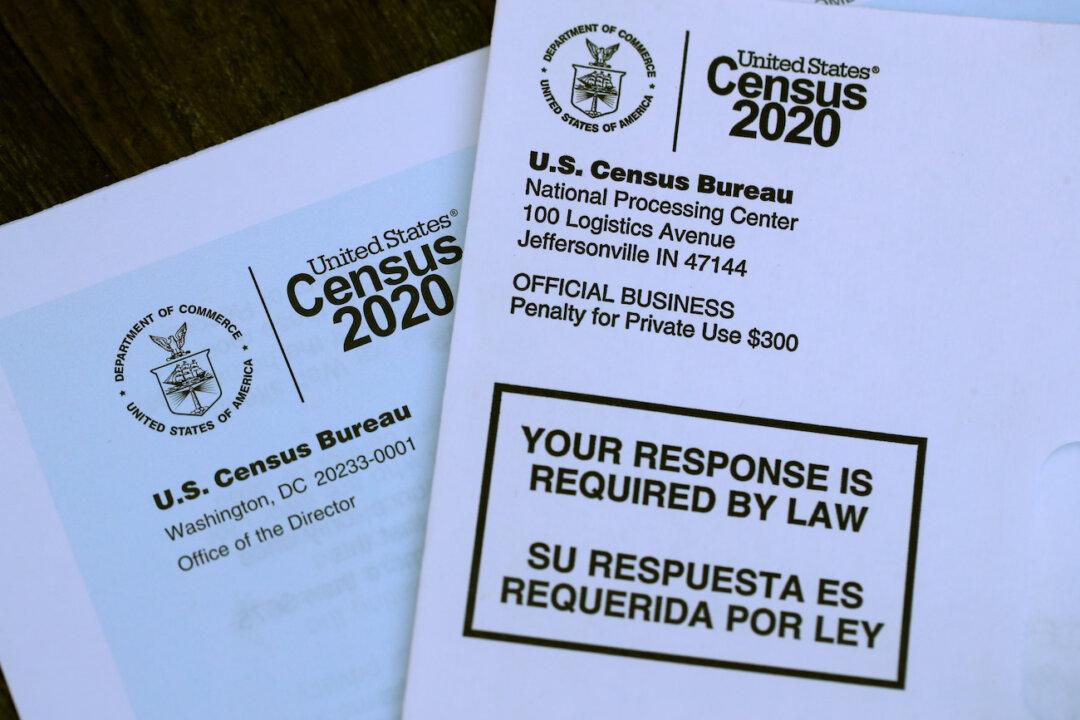Two U.S. citizens have filed a class-action lawsuit against the Census Bureau, claiming the long, detailed American Community Survey the agency requires millions to complete each year is illegal.
The lawsuit comes as the U.S. Census Bureau comes under fire for significant miscounts in the 2020 census, with population numbers in six states being undercounted, while eight states saw an overcount in population. Republicans say the botched census count unfairly prevented Florida and Texas from each gaining a seat in the U.S. House of Representatives.





